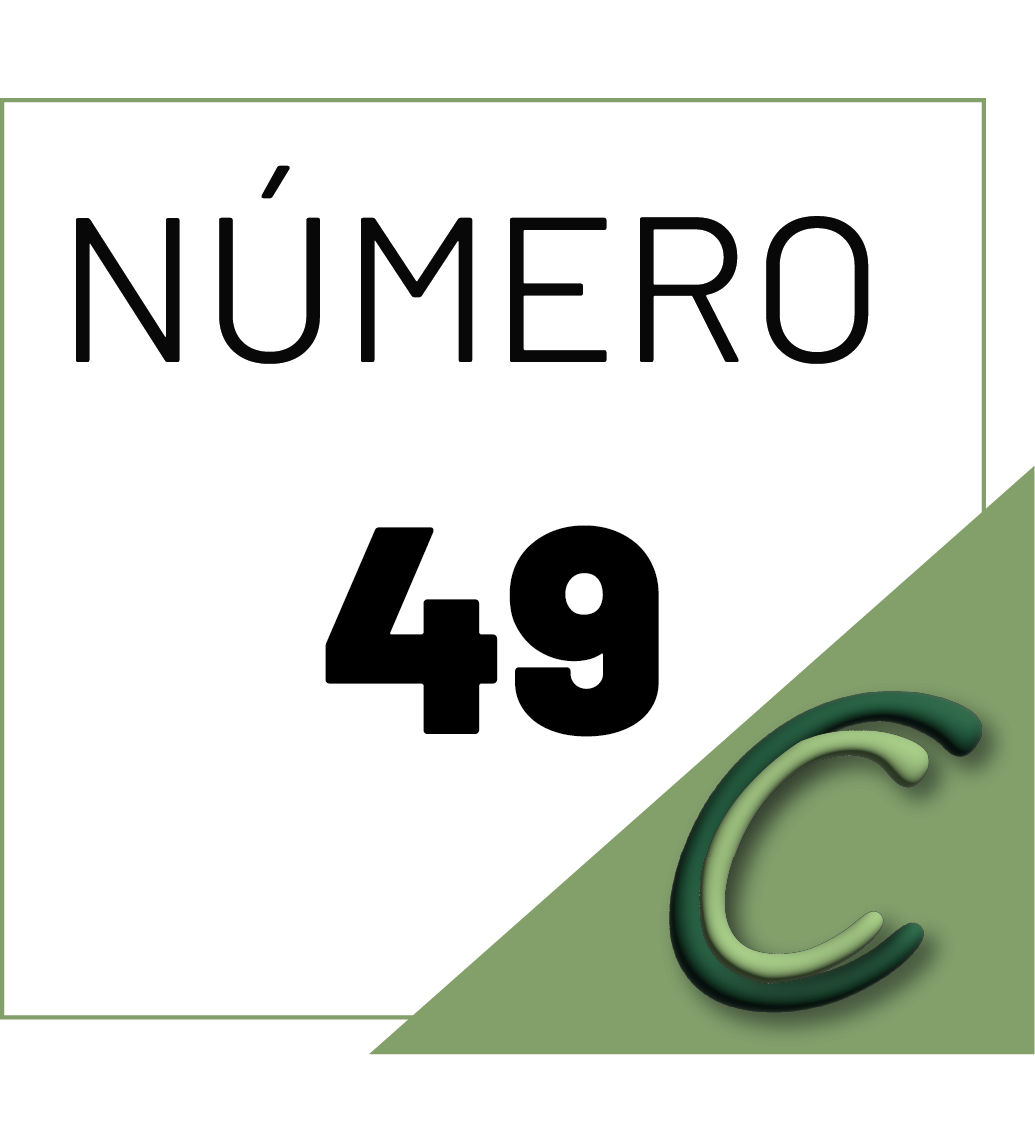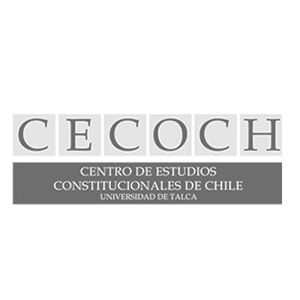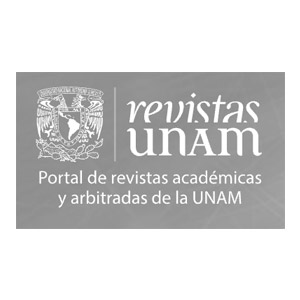Religious Fundamentalism: A Theoretical-Constitutional Analysis
This Article analysis the phenomenon of religious fundamentalism from a theoretical-constitutional perspective. The two basic questions are: what religious fundamentalism is? And what are its boundaries? At one side, religious fundamentalism is seen as a fundamental right (religious freedom) exercise, thus appointing proper constitutional boundaries in order to harmonize it with other rights, values, goods and interests. That is the question for applying balancing. From another side, religious fundamentalism is seen as a political control strategy, a platform for achieving political aims through a religiously based fundamentalist discourse. The Article demonstrates that not only the fundamentalist phenomenon crosses the constitutional boundaries of fundamental rights exercise, rather it denies central pieces of modern liberal constitutionalism.
Detalles del artículo
Uso de licencias Creative Commons (CC)
Todos los textos publicados por el Cuestiones Constitucionales. Revista Mexicana de Derecho Constitucional sin excepción, se distribuyen amparados con la licencia CC BY-NC 4.0 Internacional, que permite a terceros utilizar lo publicado, siempre que mencionen la autoría del trabajo y la primera publicación en esta revista. No se permite utilizar el material con fines comerciales.
Derechos de autoras o autores
De acuerdo con la legislación vigente de derechos de autor el Cuestiones Constitucionales. Revista Mexicana de Derecho Constitucional reconoce y respeta el derecho moral de las autoras o autores, así como la titularidad del derecho patrimonial, el cual será transferido —de forma no exclusiva— a Cuestiones Constitucionales para permitir su difusión legal en acceso abierto.
Autoras o autores pueden realizar otros acuerdos contractuales independientes y adicionales para la distribución no exclusiva de la versión del artículo publicado en Cuestiones Constitucionales. Revista Mexicana de Derecho Constitucional (por ejemplo, incluirlo en un repositorio institucional o darlo a conocer en otros medios en papel o electrónicos), siempre que se indique clara y explícitamente que el trabajo se publicó por primera vez en Cuestiones Constitucionales.
Para todo lo anterior, deben remitir la carta de transmisión de derechos patrimoniales de la primera publicación, debidamente requisitada y firmada por las autoras o autores. Este formato debe ser remitido en PDF a través de la plataforma OJS.
Derechos de lectoras o lectores
Con base en los principios de acceso abierto las lectoras o lectores de la revista tienen derecho a la libre lectura, impresión y distribución de los contenidos de Cuestiones Constitucionales por cualquier medio, de manera inmediata a la publicación en línea de los contenidos. El único requisito para esto es que siempre se indique clara y explícitamente que el trabajo se publicó por primera vez en Cuestiones Constitucionales. Revista Mexicana de Derecho Constitucional y se cite de manera correcta la fuente incluyendo el DOI correspondiente.

Esta obra está bajo una licencia internacional Creative Commons Atribución-NoComercial 4.0.
Citas
Aguiling-Pangalangan, Elizabeth. (2010). Catholic Fundamentalism and Its Impact on Women’s Political Participation in the Philippines. In Claudia Derichs & Andrea Fleschenberg (Ed.), Religious Fundamentalisms and Their Gendered Impacts in Asia (pp. 88-106). Berlin. Friedrich-Ebert-Stiftung.
Ahmed, Dawood I., Ginsburg, Tom. (2014). Constitutional Islamization and Human Rights: The Surprising Origin and Spread of Islamic Supremacy in Constitutions. Virginia Journal of International Law, 54(3), 615-695.
Al-Hibri, Azizah Y. (1992). Islamic Constitutionalism and the Concept of Democracy. Case Western Reserve Journal of International Law, 24(1), 1-27.
An-Na’im, Abdullahi Ahmed. (1987). Islamic Law, International Relations, and Human Rights: Challenge and Response. Cornell International Law Journal, 20(2), 317-335.
Arafa, Mohamed A. (2014). Whither Egypt? Against Religious Fascism and Legal Authoritarianism: Pure Revolution, Popular Coup, or a Military Coup D’État(?). Indiana International & Comparative Law Review, 24(4), 859-897.
Ariwidodo, Eko. (2017). Shifting Paradigm of Modern Islam Fundamentalism as Islamized Space Autonomy in Indonesia. Journal of Social and Islamic Culture, 25(1), 249-283.
Austria, Carolina S. Ruiz. (2004). The Church, the State and Women’s Bodies in the Context of Religious Fundamentalism in the Philippines. Reproductive Health Matters, 12(24), 96-103.
Bader, Veit. (2010). Constitutionalizing secularism, alternative secularisms or liberal-democratic constitutionalism? A critical reading of some Turkish, ECtHR and Indian Supreme Court cases on ‘secularism’. Utrecht Law Review, 6(3), 8-35.
Barroso, Luís Roberto. (2012). Here, There, and Everywhere: Human Dignity in Contemporary Law and in the Transnational Discourse. Boston College International and Comparative Law Review, 35(2), 331-393.
Blois, Matthijs de. (2010). Religious law versus secular law. The example of the get refusal in Dutch, English and Israeli law. Utrecht Law Review, Utrecht, 6(2), 93-114.
Borgmann, Caitlin E. (2014). The Constitutionality of Government-Imposed Bodily Intrusions. University of Illinois Law Review, 2014(4), 1059-1128.
Boroumand, Ladan, Boroumand, Roya. (2002). Terror, Islam and Democracy. Journal of Democracy, 12(2), 5-20.
Borowski, Martin. (2018). Grundrechte als Prinzipien. (3a. ed.). Baden-Baden. Nomos Verlag.
Brown, Barbara A. et. al. (1971). The Equal Rights Amendment: A Constitutional Basis for Equal Rights for Women. The Yale Law Journal, 80(5), 871-985.
Cain, Patricia A. (2004). The Right to Privacy Under The Montana Constitution: Sex and Intimacy. Montana Law Review, 64, 99-132.
Calhoun, Samuel W. (2018). Separation of Church and State: Jefferson, Lincoln, and the Reverend Martin Luther King, Jr. Show It Was Never Intended to Separate Religion from Politics. Washington and Lee Law Review Online, 74(2), 459-488.
Castle, Mary Ann. (2011). Abortion in the United States’ bible belt: organizing for power and empowerment. Reproductive Health Journal, 8(1), 1-11.
Chase, Anthony. (1996). Legal Guardians: Islamic Law, International Law, Human Rights Law, and the Salman Rushdie Affair. American University International Law Review, 11(3), 375-435.
Chibundu, Maxwell O. (2015). Can, Do, and Should Legal Entities Have Dignity (?): The Case of the State. Maryland Law Review, 75(1), 194-209.
Claudio, Sylvia Estrada. (2010). Sanctifying Moral Tyranny: Religious Fundamentalism and the Political Disempowerment of Women. In Claudia Derichs & Andrea Fleschenberg (Ed.), Religious Fundamentalisms and Their Gendered Impacts in Asia (pp. 13-26). Berlin. Friedrich-Ebert-Stiftung.
Cliteur, Paul. (2012). State and religion against the backdrop of religious radicalism. International Journal of Constitutional Law, 10(1), 127-152.
Conkle, Daniel O. (1994). Different Religions, Different Politics: Evaluating the Role of Competing Religious Traditions in American Politics and Law. Journal of Law and Religion, 10(1), 1-32.
Conkle, Daniel O. (1995). Secular Fundamentalism, Religious Fundamentalism, and the Search for Truth in Contemporary America. Journal of Law and Religion, 12(2), 337-370.
Coppedge, Michael, et al. (2011). Conceptualizing and Measuring Democracy: A New Approach. Perspective on Politics, 9(2), 247-267.
Cox, Cece. (2005). To Have and To Hold – Or Not: The Influence of the Christian Right on Gay Marriage Laws in the Netherlands, Canada, and the United States. Law & Sexuality, 14, 1-50.
Dan-Cohen, Meir. (2011). A Concept of Dignity. Israel Law Review, 44(2), 9-23.
Dauda, Gidado Adbu, Yusha’u, Abubakar Sabo. (2017). Influence of Accountability and Transparency on Governance in Islam. International Journal of Academic Research in Business and Social Sciences, 7(6), 449-456.
Davis, Peggy Cooper. (2009). Responsive Constitutionalism and the Idea of Dignity. Journal of Constitutional Law, 11(5), 1373-1380.
Drews, Claudia. (2005). Die Wesensgehaltsgarantie des Art. 19, II, GG. Baden-Baden. Nomos Verlag.
Dunlap, Bridgette. (2017). Protecting the Space to be Unveiled: Why France’s Full Veil Ban Does Not Violate the European Convention on Human Rights. Fordham International Law Journal, New York, 35(4), 968-1026.
Fadl, Khaled Abou El. (2003). Islam and the Challenge of Democratic Commitment. Fordham International Law Journal, 27(1), 4-71.
Fadl, Khaled Abou El. (1996). Muslim Minorities and Self-Restraint in Liberal Democracies. Loyola of Los Angeles Law Review, 29(4), 1525-1542.
Feldman, David. (1990). Democracy, the Rule of Law and Judicial Review. Federal Law Review, 19(1), 1-30.
Fish, M. Steven. (2002). Islam and Authoritarianism. World Politics, 55(1), 4-37.
Fombad, Charles Manga. (2011). Constitutional Reforms and Constitutionalism in Africa: Reflections on Some Current Challenges and Future Prospects. Buffalo Law Review, 59(4), 1007-1108.
Freamon, Bernard K. (2003). Martyrdom, Suicide, and the Islamic Law of War: A Short Legal History. Fordham International Law Journal, 27(1), 299-369.
Gedicks, Frederick Mark. (2010). God of Our Fathers, God for Ourselves: Fundamentalism and Postmodern Belief. William & Mary Bill of Rights Journal, 18(4), 901-914.
Gedicks, Frederick Mark. (1992). Public Life and Hostility to Religion. Virginia Law Review, 78(3), 671-696.
Gedicks, Frederick Mark. (1990). Some Political Implications of Religious Belief. Notre Dame Journal of Law, Ethics & Public Policy, 4(3), 419-449.
Gordner, Matthew J. (2010). Islam/ism and Democracy: Past the Compatibility Problem and Towards the Post-Islamist Turn. Journal of the Center for Studies in Religion and Society, 9(1), 3-20.
Gosalbo-Bono, Ricardo. (2010). The Significance of the Rule of Law and its Implications for the European Union and the United States. Pittsburgh Law Review, 72(2), 229-360.
Greenawalt, Kent. (1990). Religious Convictions and Political Choice: Some Further Thoughts. DePaul Law Review, 39(4), 1019-1046.
Gregg, Heather Selma. (2016). Three Theories of Religious Activism and Violence: Social Movements, Fundamentalists, and Apocalyptic Warriors. Terrorism and Political Violence, 28(2), 338-360.
Halliday, Fred. (1995). Review Article: The Politics of ‘Islam’ – a second look. British Journal of Political Science, 25(3), 399-417.
Hamilton, Vivian E. (2010). Perspectives on Religious Fundamentalism and Families in the U.S. William & Mary Bill of Rights Journal, 18(4), 883-888.
Harvey, W. Burnett. (1961). The Rule of Law in Historical Perspective. Michigan Law Review, 59(4), 487-500.
Hochel, Sandra. (2013). To Veil or Not to Veil: Voices of Malaysian Muslim Women. Intercultural Communication Studies, 22(2), 40-57.
Hoover, Dennis R., Dulk, Kevin R. Den. (2004). Christian Conservatives Go to Court: Religion and Legal Mobilization in the United States and Canada. International Political Science Review, 25(1), 9-34.
Huq, Aziz, Ginsburg, Tom. (2018). How to Lose a Constitutional Democracy. UCLA Law Review, 65(1), 78-169.
Islam, Md Nazrul, Islam, Md Saidul. (2017). Islam and Democracy: Conflicts and Congruence. Religions, 8(6), 1-19.
Jillani, Tassaduq Hussain. (2006). Democracy and Islam: An Odyssey in Braving the Twenty-First Century. Brigham Young University Law Review, 2006 (3), 727-754.
Kamali, Mohammad Hashim. (1992). Freedom of Religion in Islamic Law. The Capital University Law Review, 21(1), 63-81.
Kant, Immanuel. (2017). A Metafísica dos Costumes. (3a. ed.). Lisbon. Fundação Calouste Gulbenkian.
Khan, L. Ali. (2010). Fana and Baqa Infinities of Islam: Approaches to Islamic Law and Behavior. University of Saint Thomas Law Journal, 7(3), 511-558.
Koopmans, Ruud. (2015). Religious Fundamentalism and Hostility against Out-groups: A Comparison of Muslims and Christians in Western Europe. Journal of Ethnic and Migration Studies, 41(1), 33-57.
Kramer, Gudrun. (2003). Islam is religion and state: on the relationship among religion, law and politics in Islam. In Z. I. Munavvarov & W. Schneider-Deters (Ed.), Islam and the Secular State (pp. 191-201). Tashkent: Friedrich Ebert Foundation.
Kramnick, Isaac, Moore, R. Laurence. (1997). The Godless Constitution: A Moral Defense of the Secular State. New York. W. W. Norton & Company.
Lurie, Guy. (2020). Proportionality and the Right to Equality. German Law Journal, 21(2), 174-196.
Machrusah, Safira. (2010). Islam and Women’s Political Participation in Indonesia: Discourses and Practices In Claudia Derichs & Andrea Fleschenberg (Ed.), Religious Fundamentalisms and Their Gendered Impacts in Asia (pp. 68-87). Berlin. Friedrich-Ebert-Stiftung.
Maksimovic, Andrijana. (2018). Sovereignty in Islam: A Reflection of Tradition and Contemporaries in Modern Political Systems. Vojno Delo, 8, 38-46.
Mallat, Chibli. (2006). On the Specificity of Middle Eastern Constitutionalism. Case Western Reserve Journal of International Law, 38(1), 13-57.
March, Andrew F. (2015). Political Islam: Theory. Annual Review of Political Science, 18, 103-123.
Marczewska-Rytko, Maria. (2007). Religious Fundamentalism: Theoretical Problems. Polish Political Science, XXXVI, 215-223.
Mathews, Jud, Sweet, Alec Stone. (2008). Proportionality Balancing and Global Constitutionalism. Columbia Journal of Transnational Law, 47, 72-164.
Mayer, Ann Elizabeth. (1994). Universal versus Islamic Human Rights: A Clash of Cultures or a Clash with a Construct(?). Michigan Journal of International Law, 15(2), 307-404.
McCrudden, Christopher. (2008). Human Dignity and Judicial Interpretation of Human Rights. European Journal of International Law, 19(4), 931-944.
Middleton, Shannon A. (2001). Women’s Rights Unveiled: Taliban’s Treatment of Women in Afghanistan. Indiana International & Comparative Law Review, 11(2), 421-468.
Möller, Kai. (2007). Balancing and the structure of constitutional rights. International Journal of Constitutional Law, 5(3), 453-468.
Moyn, Samuel. (2014). The Secret History of Constitutional Dignity. Yale Human Rights and Development Journal, 17 (1), 39-73.
Mozaffari, Mehdi. (2007). What is Islamism? History and Definition of a Concept. Totalitarian Movements and Political Religions, 8(1), 17-33.
Murphy, Walter F. (1991). Civil Law, Common Law, and Constitutional Democracy. Louisiana Law Review, 52(1), 91-136.
Mustafa, Hala. (2003). Political Islam: Remarks on the Political Islamic model. In Z.I. Munavvarov & W. Schneider-Deters (Ed.), Islam and the Secular State (pp. 230-234). Tashkent: Friedrich Ebert Foundation.
Nanwani, Shaira. (2011). The Burqa Ban: An Unreasonable Limitation On Religious Freedom Or A Justifiable Restriction? Emory International Law Review, 25(3), 1431-1475.
Neff, Christyne L. (1991). Woman, Womb, and Bodily Integrity. Yale Journal of Law and Feminism, 3(2), 327-353.
Neomi Rao, Neomi. (2011). Three Concepts of Dignity in Constitutional Law. Notre Dame Law Review, 86(1), 183-272.
Nestlerode, Jana. (1993). Re-“Righting” the Right to Privacy: The Supreme Court and the Constitutional Right to Privacy in Criminal Law. Cleveland State Law Review, 41(1), 59-102.
Novais, Jorge Reis. (2003). As Restrições aos Direitos Fundamentais não Expressamente Autorizadas pela Constituição. Coimbra: Almedina.
Paine, Andrew. (1997). Religious Fundamentalism and Legal Systems: Methods and Rationales in the Fight to Control the Political Apparatus. Indiana Journal of Global Legal Studies, 5(1), 263-296.
Pin, Andrea. (2017). Arab Constitutionalism and Human Dignity. The George Washington International Law Review, 50, 1-67.
Pipes, Daniel. (1995). The Are No Moderates Dealing with Fundamentalist Islam. The National Interest, 41, 48-57.
Quraishi-Landes, Asifa. (2015). Islamic Constitutionalism: Not Secular. Not Theocratic. Not Impossible. Rutgers Journal of Law and Religion, 16, 533-579.
Rehman, Javaid, Polymenopoulou, Eleni. (2013). Is Green a Part of the Rainbow? Sharia, Homosexuality and LGBT Rights in the Muslim World. Fordham International Law Journal, 37(1), 1-52.
Reisman, M.H.A. (1994). Some Reflections on Human Rights and Clerical Claims to Political Power. Yale Journal of International Law, 19, 509-523.
Richards, David A. J. (1981). Constitutional Privacy, the Right to Die and the Meaning of Life: A Moral Analysis. William & Mary Law Review, 22(3), 327-419.
Rodriguez, Daniel B. et al. (2010). The Rule of Law Unplugged. Emory Law Journal, 59(6), 1455-1494.
Rosenbury, Laura A., Rothman, Jennifer E. (2010). Sex in and out of Intimacy. Emory Law Journal, 59(4), 809-868.
Rosenfeld, Michel. (2009). Introduction: Can Constitutionalism, Secularism and Religion be Reconciled in an Era of Globalization and Religious Revival? Cardozo Law Review, 30(6), 2333-2368.
Samuelson, Peter A. (1995). Pluralism Betrayed: The Battle Between Secularism and Islam in Algeria’s Quest for Democracy. Yale Journal of International Law, 20(2), 309-358.
Savage, Sara. (2011). Four Lessons from the Study of Fundamentalism and Psychology of Religion. Journal of Strategic Security, 4(4), 131-150.
Schlink, Bernhard. (1976). Abwägung im Verfassungsrecht. Berlin: Duncker & Humblot.
Shelly, Robert. (2007). The Discourse Concept of the Rule of Law and Democracy. Southern Cross University Law Review, 11, 59-80.
Simons, Greg. (2018). Brand ISIS: Interactions of the Tangible and Intangible Environments. Journal of Political Marketing, 17(4), 322-353.
Smolin, David M. (2018). American’s Creed: The Inevitable Sometimes Dangerous, Mixing of Religion and Politics. Washington and Lee Law Review Online, 74(2), 512-545.
Stahnke, Tad. (1999). Proselytism and the Freedom to Change Religion in International Human Rights Law. Brigham Young University Law Review, 1999(1), 251-354.
Stein, Robert. (2009). Rule of Law: What Does it Mean? Minnesota Journal of International Law, 18(2), 293-303.
Stilt, Kristen. (2004). Islamic Law and the Making and Remaking of the Iraqi Legal System. The George Washington International Law Review, 36, 695-756.
Sultany, Nimer. (2012). The State of Progressive Constitutional Theory: the Paradox of Constitutional Democracy and the Project of Political Justification. Harvard Civil Rights-Civil Liberties Law Review, 47(2), 371-455.
Waldron, Jeremy. (2008). The Concept and the Rule of Law. Georgia Law Review, 43(1), 1-61.
Warren, Samuel D., Brandeis, Louis D. (1890). The Right to Privacy. Harvard Law Review, 4(5), 193-220.
Wielandt, Rotraud. (2003). Is the unity of religion and state a sine qua non condition in Islam? In Z.I. Munavvarov & W. Schneider-Deters (Ed.), Islam and the Secular State (pp. 202-212). Tashkent. Friedrich Ebert Foundation.
Wing, Adrien Katherine. (2009). International Law, Secularism, and the Islamic World. American University International Law Review, 24(3), 407-428.
Yilmaz, Muzaffer Ercan. (2006). Religious Fundamentalism and Conflict. International Journal of Human Sciences, 3(2), 1-13.
Young, Elizabeth Aileen. (2012). The use of the Brainwashing Theory by the Anti-cult Movement in the United States of America, pre-1966. Zeitschrift für junge Religionswissenschaft, 7, 1-13.
Young, Olga Antonenko, et. al. (2013). ‘Thou Shalt Not Kill’: Religious Fundamentalism, Conservatism, and Rule-Based Moral Processing. Psychology of Religion and Spirituality, 5(2), 110-115.
Zamfir, Korinna. (2018). Returning women to their place? Religious Fundamentalism, Gender Bias and Violence Against Women. Journal for the Study of Religions and Ideologies, 17(51), 3-20.









































